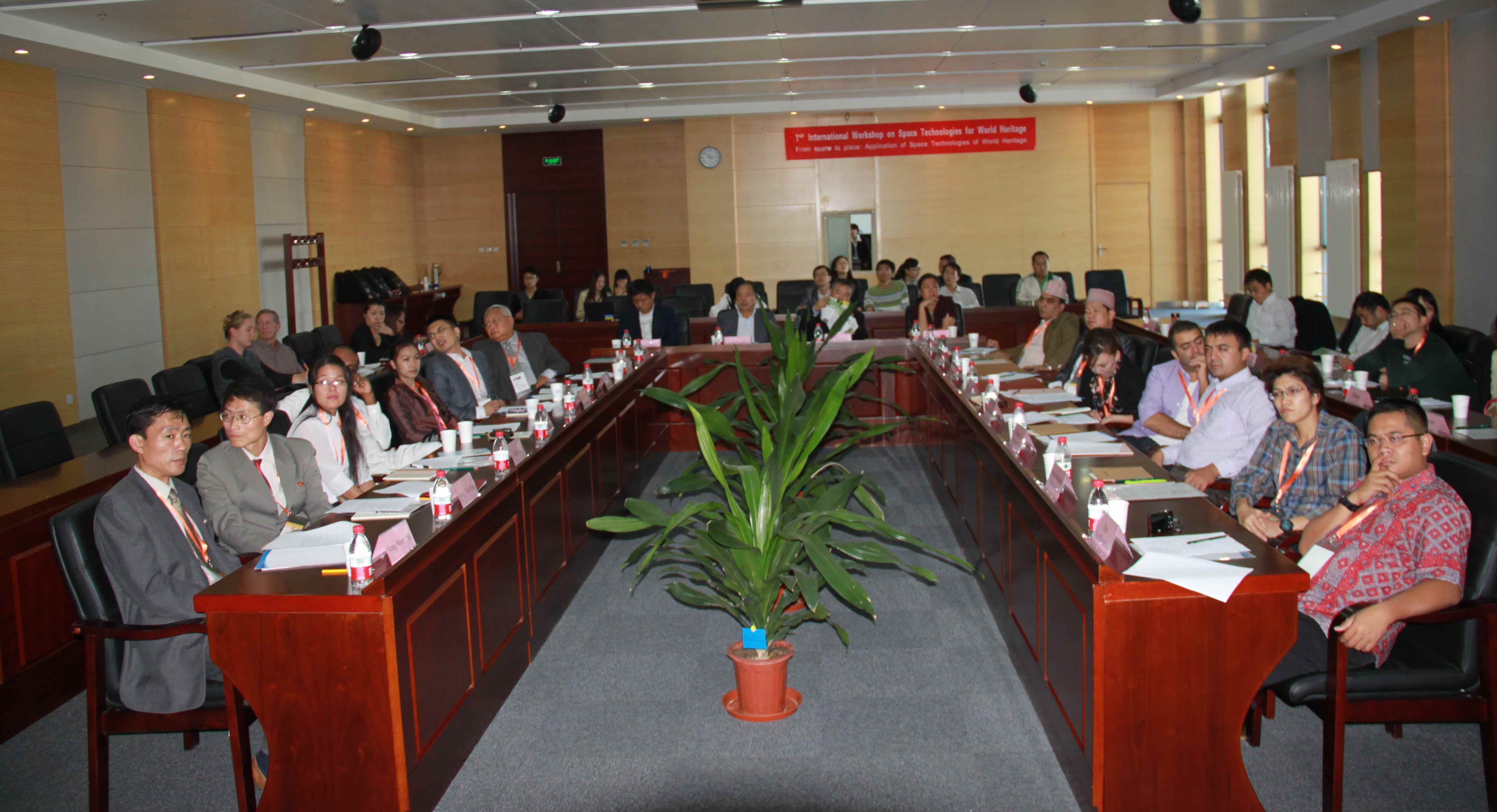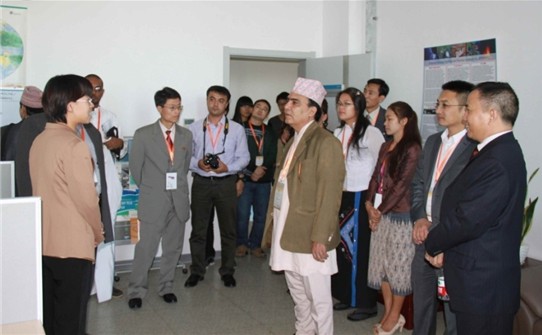On 09 October the
opening ceremony of the 1st International Workshop on Space Technologies for
World Heritage was held in Beijing. 20 participants from 15 Asian developing
countries including Iran, Sri Lanka, Cambodia, Myanmar, Laos, DPRK and so on
were present. They are policy-makers, site managers or researchers of cultural
and natural world heritage and will attend the Workshop in Beijing for a period
of 20 days. The workshop is sponsored by the Chinese Academy of Sciences and
co-hosted by the International Centre on Space Technologies for Natural and
Cultural Heritage(HIST) under the Auspices of UNESCO and the Aerospace Information Research Institute (AIR).

HIST Deputy Director and
Secretary-General Hong Tianhua chaired the opening ceremony. Prof. Guo Huadong,
Director of AIR and HIST, warmly welcomed the arrival of the participants. He
briefed them on the application of space technologies in the management and
conservation of World Heritage sites and the research facilities in AIR. He
also expressed his best wishes to them for a fruitful training and a pleasant
stay in Beijing. Prof. Cao Jinghua, Deputy Director-General of CAS Bureau of
International Cooperation, highly appreciated HIST in organizing the workshop
and would be willing to provide even more support to the activities of HIST in
the future. At the same time, he gave a brief description on CAS international cooperation
programs. Dr. Guan Qiang, Director-General of the Dept. of Cultural World
Heritage of China State Administration of Cultural Heritage, firstly conveyed
his congratulations to the successful organization of the Workshop. He then
introduced the achievements that have been made by China in the conservation
and management of World Heritageand expressed his wish to initiate cooperation
with the other Asian countries. HIST Deputy Director Wang Xinyuan made a
presentation on HIST and AIR.

Mr.
Hong Tianhua Chairs the Opening Ceremony
HIST Deputy Director and
Secretary-General Hong Tianhua chaired the opening ceremony. Prof. Guo Huadong,
Director of AIR and HIST, warmly welcomed the arrival of the participants. He
briefed them on the application of space technologies in the management and
conservation of World Heritage sites and the research facilities in AIR. He
also expressed his best wishes to them for a fruitful training and a pleasant
stay in Beijing. Prof. Cao Jinghua, Deputy Director-General of CAS Bureau of
International Cooperation, highly appreciated HIST in organizing the workshop
and would be willing to provide even more support to the activities of HIST in
the future. At the same time, he gave a brief description on CAS international
cooperation programs. Dr. Guan Qiang, Director-General of the Dept. of Cultural
World Heritage of China State Administration of Cultural Heritage, firstly
conveyed his congratulations to the successful organization of the Workshop. He
then introduced the achievements that have been made by China in the
conservation and management of World Heritageand expressed his wish to initiate
cooperation with the other Asian countries. HIST Deputy Director Wang Xinyuan
made a presentation on HIST and AIR.
Division
Director Zuo Xiaoping of the Dept. of Urban Construction, Ministry of Housing
and Urban-Rural Development of China, HIST Deputy Director Wang Changlin, HIST
Deputy Secretary-General Liu Jie, and some other researchers and staff also
attended the the opening ceremony.

|
Guo Huadong
|
Cao Jinghua
|
Guan Qiang
|
After the opening
ceremony, the participants watched a demonstration video of New Observation and
Understanding of Natural and Cultural Heritage from Space, visited the
Secretariats of the three international organizations hosted by AIR and the
satellite ground control hall to see the operation and control system of
AIR’s ground station network.
Following the visit, Director of CAS Dept. of International Cooperation Wang
Zhenyu made a presentation on “Chinese Academy of Sciences and Its
International Cooperation”.

Participants visit the
secretariat of Integrated Research on Disaster Risk (IRDR)
Participants at the satellite ground control hall
Wang Zhenyu makes a presentation.
